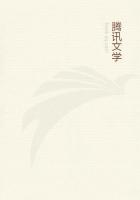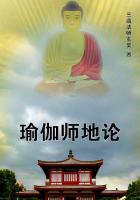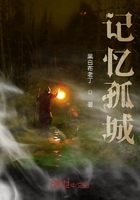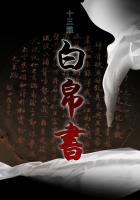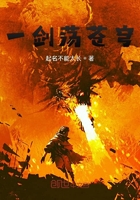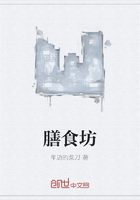Argyll saw that the whole day's struggle would be concentrated there, and, understanding more and more the importance of the village, immediately put himself at the head of the body of his army, commanding a rearguard of two thousand men to remain there and await further orders to take part in the fighting. But whether the captain who commanded them had ill understood, or whether he was eager to distinguish himself in the eyes of the queen, scarcely had Argyll vanished into the ravine, at the end of which the struggle had already commenced between Kirkcaldy of Grange and Morton on the one side, and on the other between Arbroath and Seyton, than, without regarding the cries of Mary Stuart, he set off in his turn at a gallop, leaving the queen without other guard than the little escort of twenty men which Douglas had chosen for her. Douglas sighed.
"Alas!" said the queen, hearing him, "I am not a soldier, but there it seems to me is a battle very badly begun."
"What is to be done?" replied Douglas. "We are every one of us infatuated, from first to last, and all these men are behaving to-day like madmen or children."
"Victory! victory!" said the queen; "the enemy is retreating, fighting. I see the banners of Seyton and Arbroath floating near the first houses in the village. Oh! my brave lords," cried she, clapping her hands. "Victory! victory!"
But she stopped suddenly on perceiving a body of the enemy's army advancing to charge the victors in flank.
"It is nothing, it is nothing," said Douglas; "so long as there is only cavalry we have nothing much to fear, and besides the Earl of Argyll will fall in in time to aid them."
"George," said Little William.
"Well?" asked Douglas.
"Don't you see? "the child went on, stretching out his arms towards the enemy's force, which was coming on at a gallop.
"What?"
"Each horseman carries a footman armed with an arquebuse behind him, so that the troop is twice as numerous as it appears."
"That's true; upon my soul, the child has good sight. Let someone go at once full gallop and take news of this to the Earl or Argyll."
"I! I!" cried Little William. "I saw them first; it is my right to bear the tidings."
"Go, then, my child," said Douglas; "and may God preserve thee!"
The child flew, quick as lightning, not hearing or feigning not to hear the queen, who was recalling him. He was seen to cross the gorge and plunge into the hollow road at the moment when Argyll was debouching at the end and coming to the aid of Seyton and Arbroath.
Meanwhile, the enemy's detachment had dismounted its infantry, which, immediately formed up, was scattering on the sides of the ravine by paths impracticable for horses.
"William will come too late!" cried Douglas, "or even, should he arrive in time, the news is now useless to them. Oh madmen, madmen that we are! This is how we have always lost all our battles!"
"Is the battle lost, then?" demanded Mary, growing pale.
"No, madam, no," cried Douglas; "Heaven be thanked, not yet; but through too great haste we have begun badly."
"And William?" said Mary Stuart.
"He is now serving his apprenticeship in arms; for, if I am not mistaken, he must be at this moment at the very spot where those marksmen are ****** such quick firing."
"Poor child!" cried the queen; "if ill should befall him, I shall never console myself."
"Alas! madam," replied Douglas, "I greatly fear that his first battle is his last, and that everything is already over for him; for, unless I mistake, there is his horse returning riderless."
"Oh, my God! my God!" said the queen, weeping, and raising her hands to heaven, "it is then decreed that I should be fatal to all around me!"
George was not deceived: it was William's horse coming back without his young master and covered with blood.
"Madam," said Douglas, "we are ill placed here; let us gain that hillock on which is the Castle of Crookstone: from thence we shall survey the whole battlefield."
"No, not there! not there!" said the queen in terror: "within that castle I came to spend the first days of my marriage with Darnley; it will bring me misfortune."
"Well, beneath that yew-tree, then," said George, pointing to another slight rise near the first; "but it is important for us to lose no detail of this engagement. Everything depends perhaps for your Majesty on an ill-judged manoeuvre or a lost moment."
"Guide me, then," the queen said; "for, as for me, I no longer see it. Each report of that terrible cannonade echoes to the depths of my heart."
However well placed as was this eminence for overlooking from its summit the whole battlefield, the reiterated discharge of cannon and musketry covered it with such a cloud of smoke that it was impossible to make out from it anything but masses lost amid a murderous fog.
At last, when an hour had passed in this desperate conflict, through the skirts of this sea of smoke the fugitives were seen to emerge and disperse in all directions, followed by the victors. Only, at that distance, it was impossible to make out who had gained or lost the battle, and the banners, which on both sides displayed the Scottish arms, could in no way clear up this confusion.
At that moment there was seen coming down from the Glasgow hillsides all the remaining reserve of Murray's army; it was coming at full speed to engage in the fighting; but this manoeuvre might equally well have for its object the support of defeated friends as to complete the rout of the enemy. However, soon there was no longer any doubt; for this reserve charged the fugitives, amid whom it spread fresh confusion. The queen's army was beaten. At the same time, three or four horsemen appeared on the hither side of the ravine, advancing at a gallop. Douglas recognised them as enemies.
"Fly, madam," cried George, "fly without loss of a second; for those who are coming upon us are followed by others. Gain the road, while I go to check them. And you," added he, addressing the escort, "be killed to the last man rather than let them take your queen."

